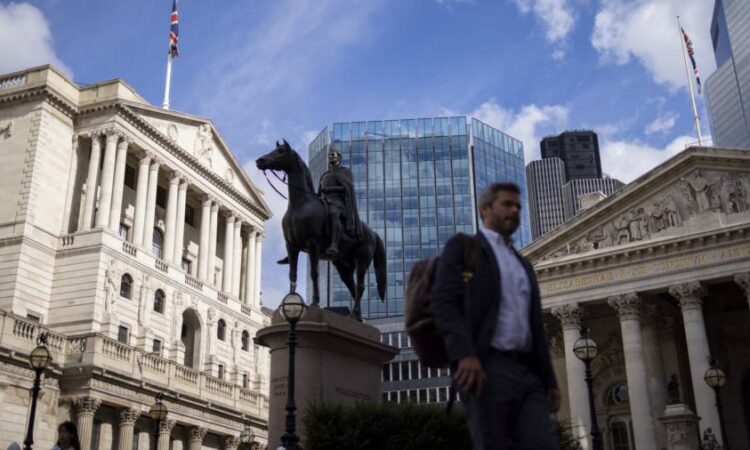
UK companies are cutting investment on the back of higher interest rates, according to an influential Bank of England survey on Thursday that raises fresh concerns over the country’s lacklustre capital spending levels.
Responding to the central bank’s monthly decision maker panel, business leaders on average estimated that higher rates would lower their investment by 8 per cent relative to if they had not increased.
The study, based on interviews with chief financial officers in the first half of December, also showed a 0.5 percentage point rise in wage growth expectations for the year ahead to 6.3 per cent. The increase supports the view that the BoE will further tighten its monetary policy in 2023.
However, businesses’ inflation expectations were broadly unchanged. Their expectation for three-month average output price growth fell to 5.9 per cent in December from a peak of 6.6 per cent in the three months to September.
Markets are pricing in another rise in interest rates when the BoE’s Monetary Policy Committee next meets on February 2. Probabilities are almost equally split between a 50 and a 25 basis point increase, following a 50bp rise to 3.5 per cent last month.

Interest rates have risen sharply from the record low of 0.1 per cent in November 2021 as the BoE seeks to combat high inflation.
The results of the latest DMP survey — which was set up in August 2016 by the BoE with academics from Stanford University and the University of Nottingham — suggest that the increase in interest rates is likely to hit the already poor level of UK capital investment.
Business investment in the third quarter of 2022 was 8.1 per cent below its pre-coronavirus pandemic level, according to the Office for National Statistics. By contrast, gross domestic product has recovered far faster, coming in during the same period at 0.8 per cent below its level in the fourth quarter of 2019.
Investment levels in the third quarter of 2022 were also down 6.4 per cent compared with the second quarter of 2016, when the UK voted to leave the EU. US business investment was up 22 per cent over the same period.

The Office for Budget Responsibility (OBR) sharply downgraded its outlook for business investment in November last year.
The independent fiscal watchdog in March last year predicted that investment would return to pre-pandemic levels by mid-2022, thanks in part to the “super-deduction” in corporation tax, which expires at the end of March this year. But it now expects that to happen only at the end of 2025.
The large downgrade is a result of the UK economy entering a recession, higher interest rates and higher energy prices.
Many economists consider the underperformance of business investment, which is key to productivity growth and boosting living standards, as a drag on medium-term growth prospects.
In the Financial Times’ annual survey of leading UK-based economists, Bronwyn Curtis, OBR non-executive director, said: “Weak business investment has dogged the economy and I expect that to continue over the coming years.”
Yael Selfin, chief economist at advisory firm KPMG, was of a similar view. “Poor investment and exports performance remain a major worry for the UK’s medium-term growth prospect,” she noted.






